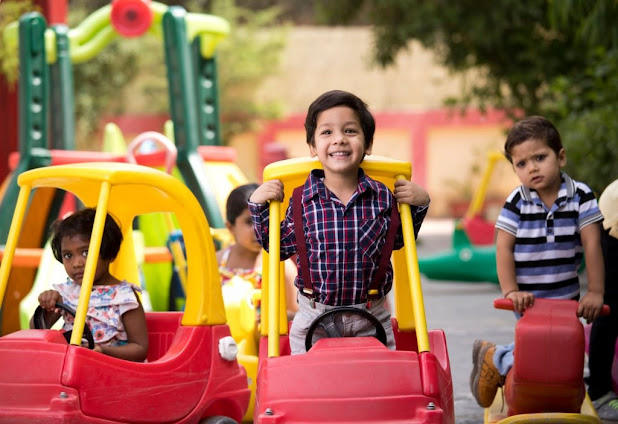The Crucial Role of Play Schools in Early Childhood Education
In the vibrant landscape of early childhood education, play schools emerge as dynamic environments where children embark on a journey of discovery, exploration, and growth. Far from mere child's play, these institutions play a pivotal role in laying the foundation for a lifetime of learning. Let's delve into the crucial role that best pre schools in India fulfill in early childhood education.
1. Foundation of Social Skills:
Play schools serve as the first stepping stone into the world beyond the family unit for many children. Here, they learn to interact with peers, share toys, take turns, and resolve conflicts—all crucial social skills that lay the groundwork for successful relationships later in life. Through play, children develop empathy, cooperation, and the ability to communicate effectively, essential qualities for navigating the complexities of the social landscape.
2. Stimulating Cognitive Development:
Play is not just random activity; it's a dynamic process through which children make sense of the world around them. In play schools, various activities are carefully designed to stimulate cognitive development. Whether it's building blocks, puzzles, or pretend play, each activity offers opportunities for problem-solving, critical thinking, and creativity. Through play, children learn to experiment, make decisions, and explore their interests, fostering a lifelong love for learning.
3. Emotional Expression and Regulation:
Early childhood is a time of rapid emotional development, and play school for kids provides a safe space for children to express and regulate their emotions. Whether it's through dramatic play, art activities, or storytelling, children learn to identify and manage their feelings constructively. This emotional intelligence cultivated in play schools lays a solid foundation for mental well-being and resilience in later life.
4. Physical Development:
Play schools promote physical activity through both structured and unstructured play. From outdoor games to indoor gym sessions, children develop gross motor skills, coordination, and spatial awareness. Moreover, activities like painting, drawing, and clay modeling refine fine motor skills, laying the groundwork for tasks like writing and drawing in the future. A healthy body not only fosters physical well-being but also enhances overall cognitive functioning.
5. Language and Literacy Skills:
Language is at the heart of early childhood education, and play schools offer rich opportunities for language development. Whether it's through conversations with peers, storytelling, or singing songs, children expand their vocabulary, grasp grammar rules, and develop listening and speaking skills. Additionally, exposure to books and literacy-rich environments ignites a love for reading and lays the foundation for academic success.
6. Fostering Independence and Confidence:
In the nurturing environment of play schools, children are encouraged to explore, experiment, and make choices independently. From dressing themselves to tidying up after playtime, every task fosters a sense of autonomy and self-confidence. As children master new skills and overcome challenges, they develop a positive self-image and a belief in their ability to tackle new endeavors—a priceless gift that empowers them throughout their lives.
In conclusion, primary school in india play a pivotal role in laying the groundwork for a child's holistic development. Through play, children not only learn essential academic skills but also cultivate social, emotional, and physical competencies that serve as the building blocks for success in school and beyond. As we celebrate the joys of childhood play, let us also recognize its profound impact on shaping the bright minds of tomorrow.




Comments
Post a Comment